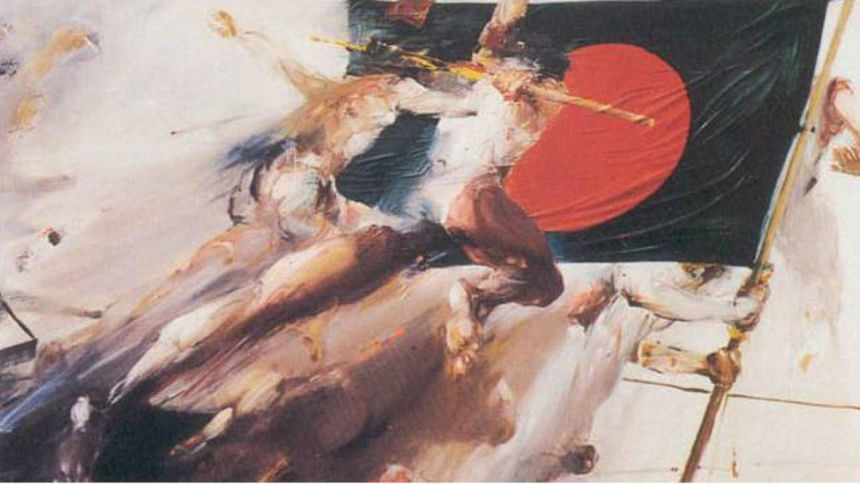First Pakistan, now Turkey

Regular as clockwork, Pakistan has issued yet another statement after the execution of war criminal Mir Quasem Ali. The Pakistani government handed over a note to our High Commissioner in Islamabad on September 3 stating that "Pakistan is deeply saddened" over the execution of Quasem. While we are not particularly surprised at the current statement, since Pakistan has been dead opposed to the war crimes tribunal proceedings (from its inception) in Bangladesh, it is interesting to note that Turkey has been following suit with statements from Ankara about convicted war criminals facing the gallows for some time now. Turkey expressed its "sorrow" in the matter of the latest execution.
Precisely what the Turkish government means by its statement : "we stress once again that the wounds of the past cannot be healed with these methods and hope that this wrong practice will not lead to a separation among the brotherly people of Bangladesh" points out once again that Ankara is, in principle, aligned with Islamabad in portraying the whole trial process as a farce – a travesty of justice and one that is being pursued for the purpose of settling political scores that is going to divide the nation and its people. Nothing could be further from the truth. The Turkish government headed by Mr. Erdogan is either ill informed or, as much as we would like to disbelieve, sympathetic towards a defamation campaign against the government of Bangladesh on the trial process and attempting to portray some convicted war criminals as "great Islamic scholars".
Motiur Rahman Nizami, who was hanged on May 10, was anything but an 'Islamic scholar'; he was a man who headed the dreaded militia 'Al-Badr Bahini', the sole purpose for its existence was to round up, torture and execute the nation's intellectuals in the closing hours of the War of Liberation. Turkey chose to recall its ambassador from Dhaka in protest of his execution after its foreign ministry issued a strong condemnation, stating that it did not believe that 'Nizami deserved such a punishment' and that Turkey, which had earlier abolished capital punishment, was of the opinion that his execution would create hatred between Bangladeshis. We can literally draw parallels between Islamabad and Ankara in their reaction to the ongoing war crimes trial. While Pakistan lost the war in 1971, what exactly does Ankara hope to gain by siding with mass murderers who have faced years of litigation and have been handed the death sentence for crimes against humanity?
How is it that the Turkish government only chooses to see one side of the argument? Why does it not look at the atrocities committed in 1971 by a marauding Pakistani military in an attempt to stifle and eventually stamp out a nation's demand for independence? Where is its "sorrow" for the millions dead, the hundreds of thousands raped, the organised execution of the intelligentsia and the destruction of the economy in the nine months that constituted our war of independence? What about the "sorrow" of millions of people who never saw a father, mother, children or siblings who were killed or simply disappeared without a trace during those harrowing nine months of '71? Why does Ankara choose to ignore the international media spotlight that was on the then East Pakistan (today's Bangladesh), where daily atrocities were reported globally in the press, televised and reported on radio?
It is ironic to hear such lofty phrases as "healing the wounds of the past" and expressions of "sorrow" from a foreign government that has recently lived through a failed coup-de-tat and which is now trampling over rights of its citizenry, including members of the armed forces, the judiciary and other sections of society in the name of restoring order and democracy. As per international media reports, the Turkish government has just ordered the sacking of yet another 10,000 police officers, judges, prosecutors, academics through a decree. This is in addition to the tens of thousands of people who have already been purged from the system through dismissal, arrest and incarceration. There is also talk of bringing back capital punishment.
In the post-coup days, our head of state called Mr. Erdogan to wish him well, despite all the things that have gone on in that country since then, which some may term as an attack on secularism and democratic institutions and culture. That is not the point. The point is that a line has to be drawn as to what sort of criticism we will swallow when it comes to dealing with issues as sensitive as genocide. We experienced it and the demand of a people for justice against the perpetrators of genocide, both domestic and foreign, that had been left hanging for four decades has come to fruition through a lengthy legal procedure after the present government came to power. Pakistan's position, as stated before, is unacceptable but not surprising because it was the perpetrator of genocide in '71 but Turkey's stand is incomprehensible and regrettable. President Erdogan and his government may have toned down its response to the hanging of the latest convicted war criminal, but it still leaves a very bad taste in our mouths. It makes us wonder whether our Turkish brothers truly want "brotherly relations" with us.
The writer is Assistant Editor, The Daily Star.

 For all latest news, follow The Daily Star's Google News channel.
For all latest news, follow The Daily Star's Google News channel. 





Comments